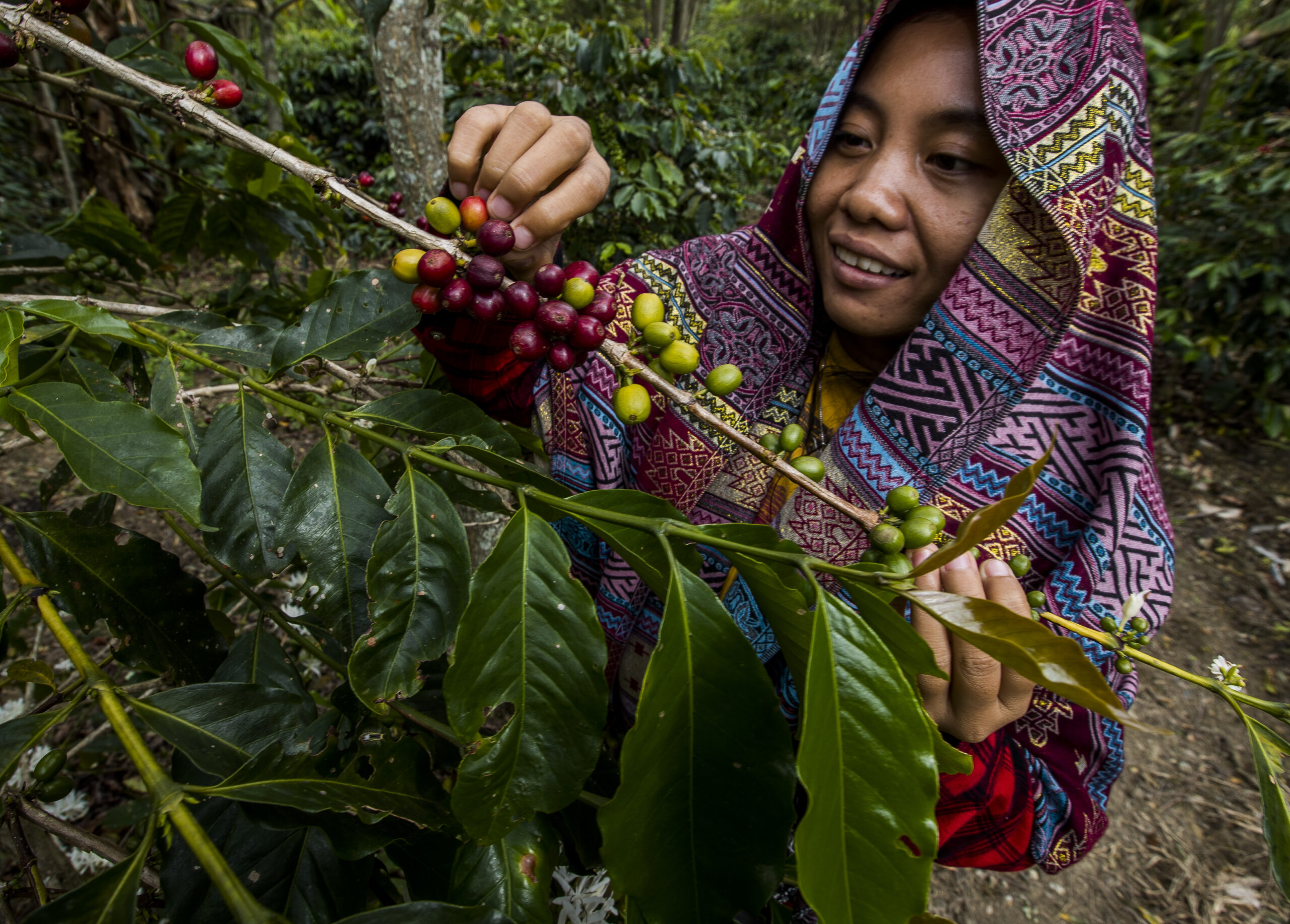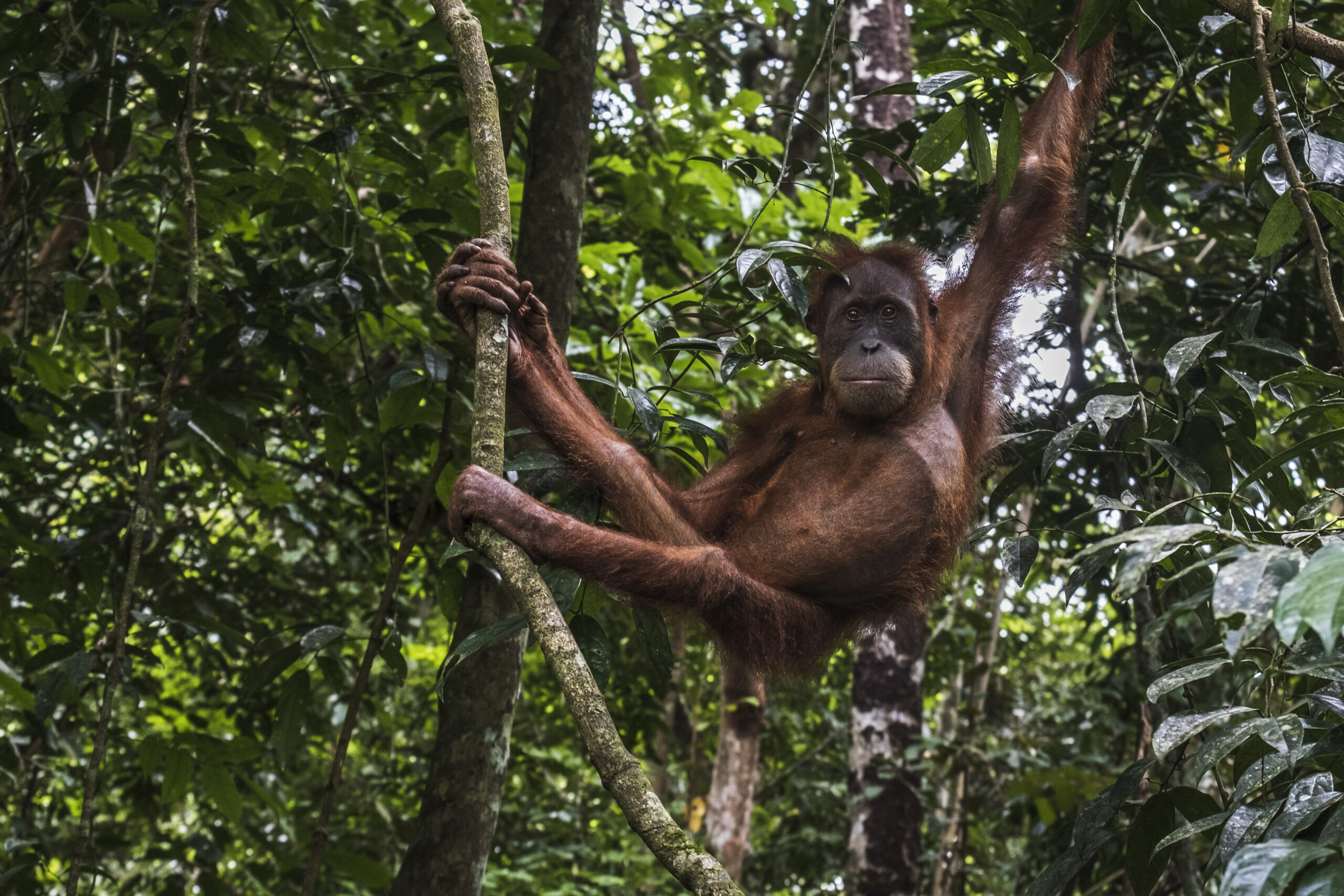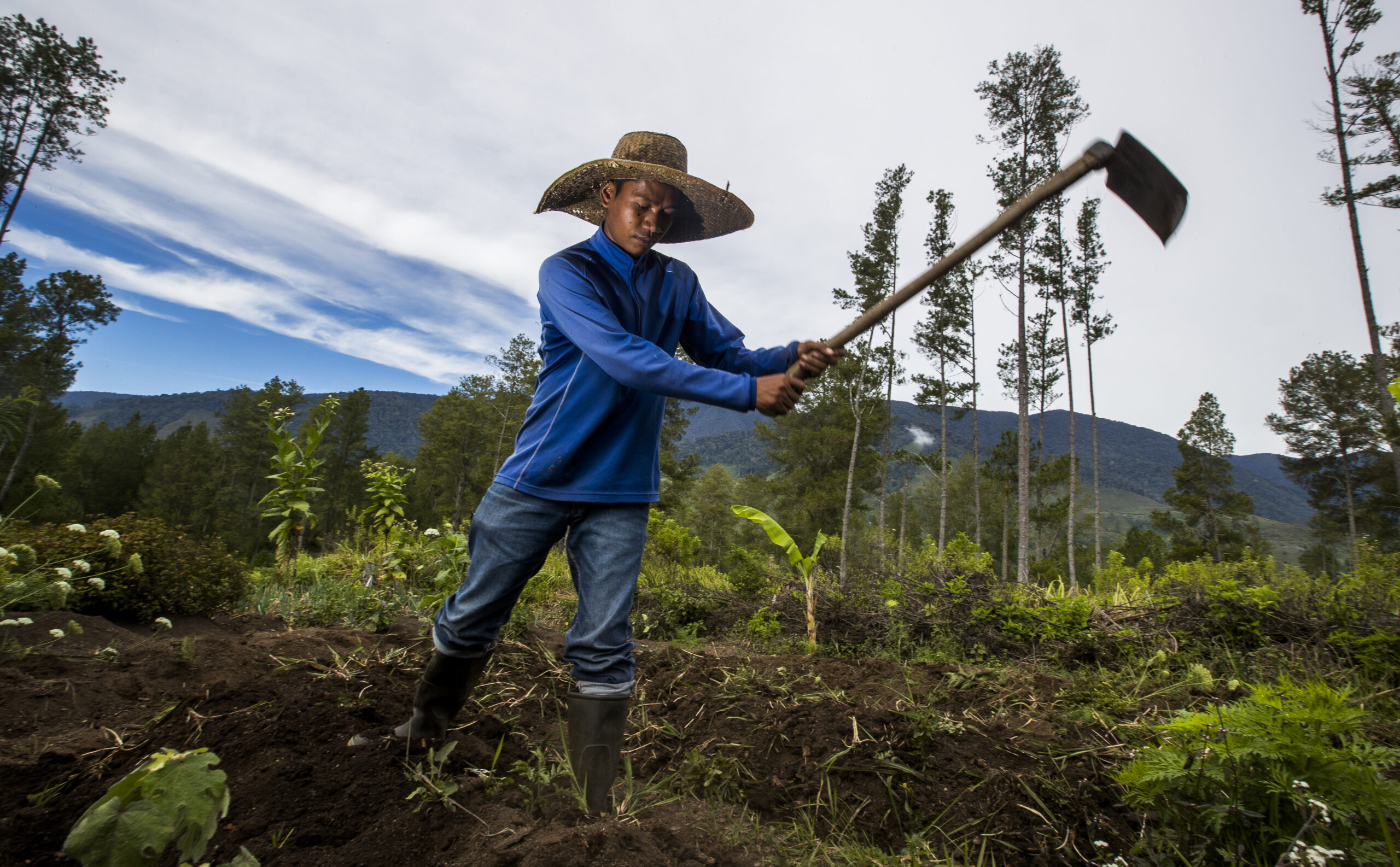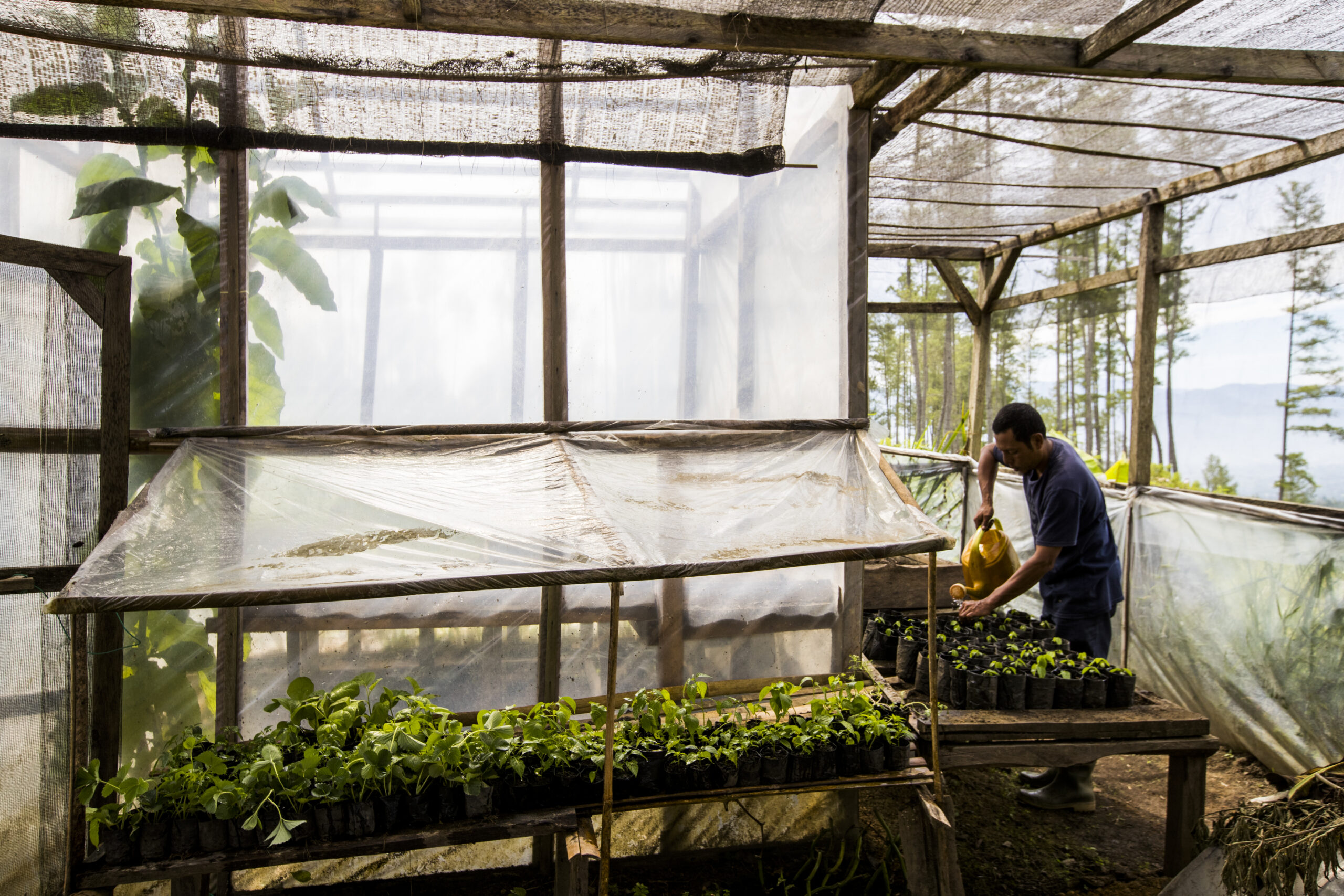Global brands need to invest more in community livelihood projects that reduce emissions and help build resilient societies
Scientists predict that on our current trajectory of habitat loss and global warming, nearly 40% of all species will face extinction by the end of this century. Their disappearance will upend ecosystems and destabilize human civilization. Facing this brink of extinction, there is a significant opportunity for private sector actors, governments, communities and civil society organizations to support the implementation of sustainable livelihood initiatives as part of efforts to achieve no deforestation commodity supply chains and begin managing natural resources in a way that ensures long-term sustainability.
Increasing support for sustainable livelihoods for communities located inside and surrounding the Leuser Ecosystem is crucial for both the well-being of the local communities and the conservation of this unique and biodiverse environment. The Leuser Ecosystem is one of the most important conservation areas in Southeast Asia, renowned for its rich biodiversity, including endangered species like the Sumatran orangutan, Sumatran tiger, and Sumatran elephants.
The Leuser Ecosystem provides food and water for millions of people. Generations depend on this uniquely biodiverse forest ecosystem for their livelihoods and have done so for millennia as it is the customary lands for the Gayo, Alas, Kluet, Aneuk Jamee, and Karo peoples. These communities, and many others in Aceh and North Sumatra, have fought for over a century to protect the integrity of the Leuser Ecosystem’s extraordinary forests, peatlands, wild rivers, and montane environment. It is critical that sustainable livelihood initiatives are designed through bottom-up processes so they can be tailored to local community needs, and aim to achieve the protection of the tropical rainforests of the Leuser Ecosystem and its biodiversity.
Orang Utan Coffee – Providing Sustainable Livelihoods and Protecting Rainforests and Wildlife in the Leuser Ecosystem
Sustainable livelihood initiatives have been practiced by local communities that live in Gayo Lues, Aceh, Sumatra for centuries. Located in the Gayo Highland at 900 – 2000 m above sea level, it is one of the largest Arabica coffee producing areas in the world and borders the protected Gunung Leuser National Park, a protected forest within the 2.6 million hectare Leuser Ecosystem. First introduced in 1908, during the Dutch colonial period, coffee plantations in the Gayo Highlands have long played an important role in supporting the livelihood of local communities and this role has continued for generations.

The coffee plantations in the Gayo Highlands are managed by individual smallholder farmer families with an average land ownership of less than 2 hectares. Due to its fertile, volcanic soil the character of Gayo coffee is very diverse. A wide variety of coffees are produced, ranging from Bourbon to Catimor varieties. Not to mention the extraordinary post-harvest handling that involves dry or wet processing, grading, sorting, blending, and roasting. These complex influences of the Gayo Highlands create a multitude of distinctive flavors, which makes Gayo Coffee a very unique coffee which has become one of the world’s most specialized coffees.
Coffee Project Combines Species and Habitat Conservation
In the Bahasa Indonesia language, ‘orang’ means people and ‘hutan’ means forest, so the name ‘orangutan’ translates roughly as ‘person of the forest.’ The Orang Utan Coffee project is one example of the implementation of a vision towards a holistic and sustainable approach to producing high quality coffee that is socially and ecologically responsible and contributes to climate protection and the preservation of biodiversity. The project is managed by the Sumatran Orangutan Conservation Programme (SOCP) and involves approximately 350 smallholder farmers in the production of Orang Utan Coffee. The program produces consistently high quality organic coffee –– that is certified in compliance with EU Organic Standards. The smallholder farmers are committed to protecting their surrounding rainforests and its wildlife through the project.
This project implements exemplary measures to promote the conservation of Leuser Ecosystem forest as the main habitat of critically endangered species –The Sumatran orangutan (Pongo abelii). Recent surveys by the SOCP found only around 14,000 wild Sumatran orangutans remain, and that all remaining populations are still declining rapidly due to deforestation and wildlife trafficking. A premium of 50 cents per kilogram of exported green beans is paid to the farmer for their extra efforts in complying with organic and nature conservation standards. An equal amount is used to fund SOCP’s programmes, which includes funding teams that are deployed to the Leuser Ecosystem to rescue orangutans that are in danger due to palm oil or agriculture development or being illegally captured by poachers. SOCP also maintains rehabilitation and reintroduction programs, conducts biodiversity monitoring, research and surveys, and implements habitat conservation, and community development projects.

A male young orangutan in Jantho release center in Aceh, location for SOCP Orangutan rehabilitation and reintroduction program. Photo: RAN
Smallholder farmers that join this project receive agricultural capacity building through training on organic cultivation methods, including composting and re-planting. They are also provided with improved equipment for coffee processing and drying. This support helps smallholder farmers and their families to achieve a superior quality product––quality is a key factor that can help establish long-term financial stability and secure access to international markets or the supply chains of major brands like Nestlé. With premium coffee generated, the farmers are rewarded for their enormous efforts to comply with the strict organic production standards of Orang Utan Coffee that result in protection of the montane rainforest and its flora and fauna.
Gayo Permaculture Center
Another sustainable livelihood project in Aceh’s Gayo Highlands is the establishment of the Gayo Permaculture Centre (GPC) by the Orangutan Information Center (OIC). The GPC site is used as a demonstration plot to show local farmers how they can enrich their own soils with permaculture practices. The program aims to educate communities on how the use of permaculture practices can provide dignified income for family farmers and how sustainable management of forest resources can be achieved to accommodate the needs of both sides –humans and forest ecosystems– in integrated and balanced ways.

The 10 ha GPC agricultural land is designed to produce various types of vegetable and horticultural crops and is capable of producing various types of essential oils. This land now has become the center of production for several major aromatic ingredients that are sold within Indonesia and exported overseas for the global market. Citronella grass has grown here where large tufts of the plant rest as an understory to the native pines that cover the landscape. Vanilla, lemongrass and patchouli have also been grown in abundance.

Since its establishment in 2015, 150 farmers from 6 villages around the center have received training on how to avoid slash and burn agricultural practices when establishing family farms. Fifty of these farmers have also been trained to use hydroelectric distillation equipment rather than wood from the forest to distill essential oils. This project has helped prevent local communities from encroaching further into the protected forest of the Gunung Leuser National Park while also learning how to produce agricultural products sustainably. OIC has also worked with local communities to reforest 50 hectares of protected forest in Gayo at the same time.
Global Brands Need to Take Lead in Sustainable Development
Global brands can play crucial roles in advancing sustainable livelihoods for local communities that live within and around the Leuser Ecosystem. As a first step, they must ensure their sourcing practices are not driving communities to engage in deforestation for crops sourced from the Leuser Ecosystem like palm oil, coffee and cocoa. They must adopt and rapidly implement cross-commodity No Deforestation, No Peatland and No Exploitation (NDPE) policies throughout their global forest-risk commodity supply chains, and those that touch down in Aceh, North Sumatra and the Leuser Ecosystem.
Brands can partner with governments, civil society organizations, farmer groups and local communities to assist them in making improvements in practices that are needed to adhere to their ‘no deforestation’ (NDPE) policies at scale across a political jurisdiction or critical landscape like the Leuser Ecosystem. They can invest in sustainable livelihood projects, such as those that advance NDPE compliant agriculture, community based forest management, the production of non-timber forest products, and other alternative income sources that reduce dependence on activities that harm the ecosystem.
Many brands claim to have investments in sustainable livelihood programs, but the effectiveness of these programs remain in question. In the past few years, Unilever and PepsiCo have set precedents through their involvement in developing jurisdictional programs alongside governments in the provinces of Aceh and North Sumatra––home to Indonesia’s globally important Leuser Ecosystem. These programs have been welcomed by civil society organizations as they aim to advance a NDPE compliant palm oil sector in Aceh, and have involved thousands of smallholder farmers and the protection and restoration of forests. But RAN’s 2023 Keep Forests Standing Scorecard report cautions that while these programs hold promise, the scale of change isn’t happening nearly fast enough, including on the frontlines of palm oil expansion in the Rawa Singkil Wildlife Reserve in south-west Aceh.
